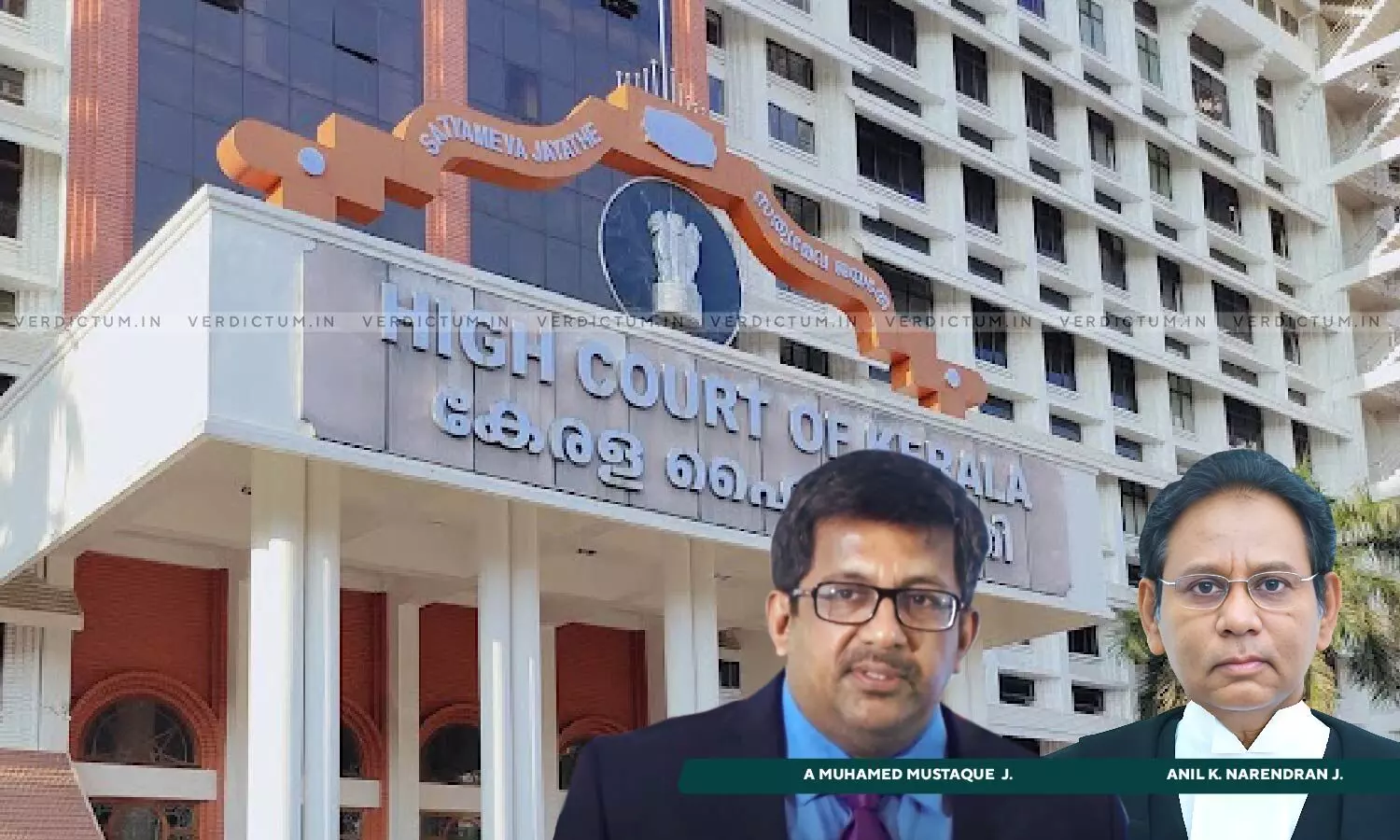
SARFAESI Act| One Who Failed To Make Out Case For Issuance Of Writ Of Certiorari Can’t Seek Writ Of Mandamus For Repayment Of Loan: Kerala HC
 |
|The Kerala High Court has held that under the SARFAESI Act (Securitisation And Reconstruction Of Financial Assets And Enforcement Of Security Interest Act, 2002), one who has failed to make out a case for issuance of writ of certiorari cannot seek a writ of mandamus.
The Court was dealing with a writ appeal filed by a man aged 50 years who sought a writ of certiorari to quash the sale notice issued by the Authorised Officer of the Indian Overseas Bank.
A Division Bench of Justice A. Muhamed Mustaque and Justice Anil K. Narendran noted, “As already noticed, the appellant did not avail the benefit of Ext.P1 judgment of this Court in W.P.(C)No.8920 of 2023. The appellant, who failed to make out a definite case for the issuance of a writ of certiorari to quash Ext.P2 sale notice dated 22.06.2023 issued by the Authorised Officer of the respondent Bank, cannot seek a writ of mandamus in W.P.(C)No.23832 of 2023 praying for time to repay the entire loan amount due, by selling a portion of his property.”
Advocate Subi K. represented the appellant while Advocate Sunil Shankar A. represented the respondent.
In this case, the appellant, who availed financial assistance to the tune of Rs.1,14,50,000/- from Ernakulam Branch of Indian Overseas Bank, along with his wife, had approached the High Court seeking a writ of certiorari to quash the sale notice issued by its Authorised Officer (respondent), regarding the sale of mortgaged property. The petitioner had sought for a writ of mandamus commanding the respondent to grant him time to repay the entire loan amount due, by selling a portion of his property and to keep in abeyance all further proceedings; and appropriate writ, order or direction granting permission to sell a portion of the property mortgaged with the Bank for closing the account.
The High Court in the above regard observed, “When the tribunal constituted under the SARFAESI Act is expected to go into the issues of fact and law, including a statutory violation, the attempt made by the appellant to circumvent the particular mode prescribed under the statute shall not be encouraged by the writ court.”
The Court found no reason to interfere with the judgment of the Single Judge declining the appellant the reliefs sought for. In the impugned judgment, the Single Judge declined reliefs to the appellant, relying on the law laid down by the Apex Court in Naveen Mathew Philip [(2023) SCC online (SC) 435].
“One of the grounds raised in this writ appeal is that the learned Single Judge went wrong in dismissing the writ petition without considering the financial difficulty faced by the appellant. In view of the provisions under Article 141 of the Constitution of India, the law declared by the Apex Court shall be binding on all courts within the territory of India”, said the Court.
The Court added that the writ appeal is nothing but an abuse of process of the court which is liable to dismissed.
Accordingly, the High Court dismissed the writ appeal.
Cause Title- Sanil Kumar V v. The Authorised Officer, Indian Overseas Bank (2023:KER:52510)